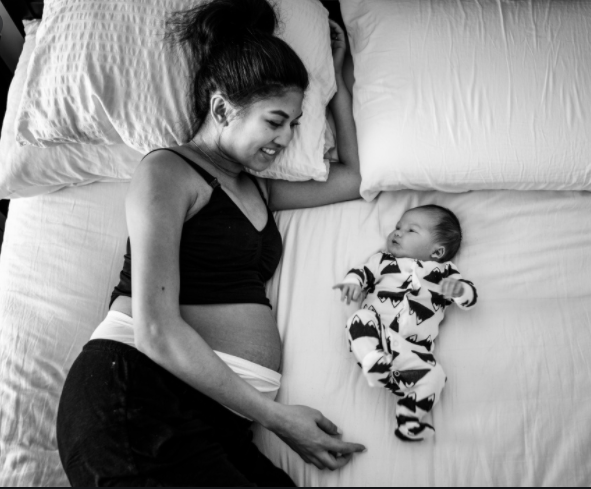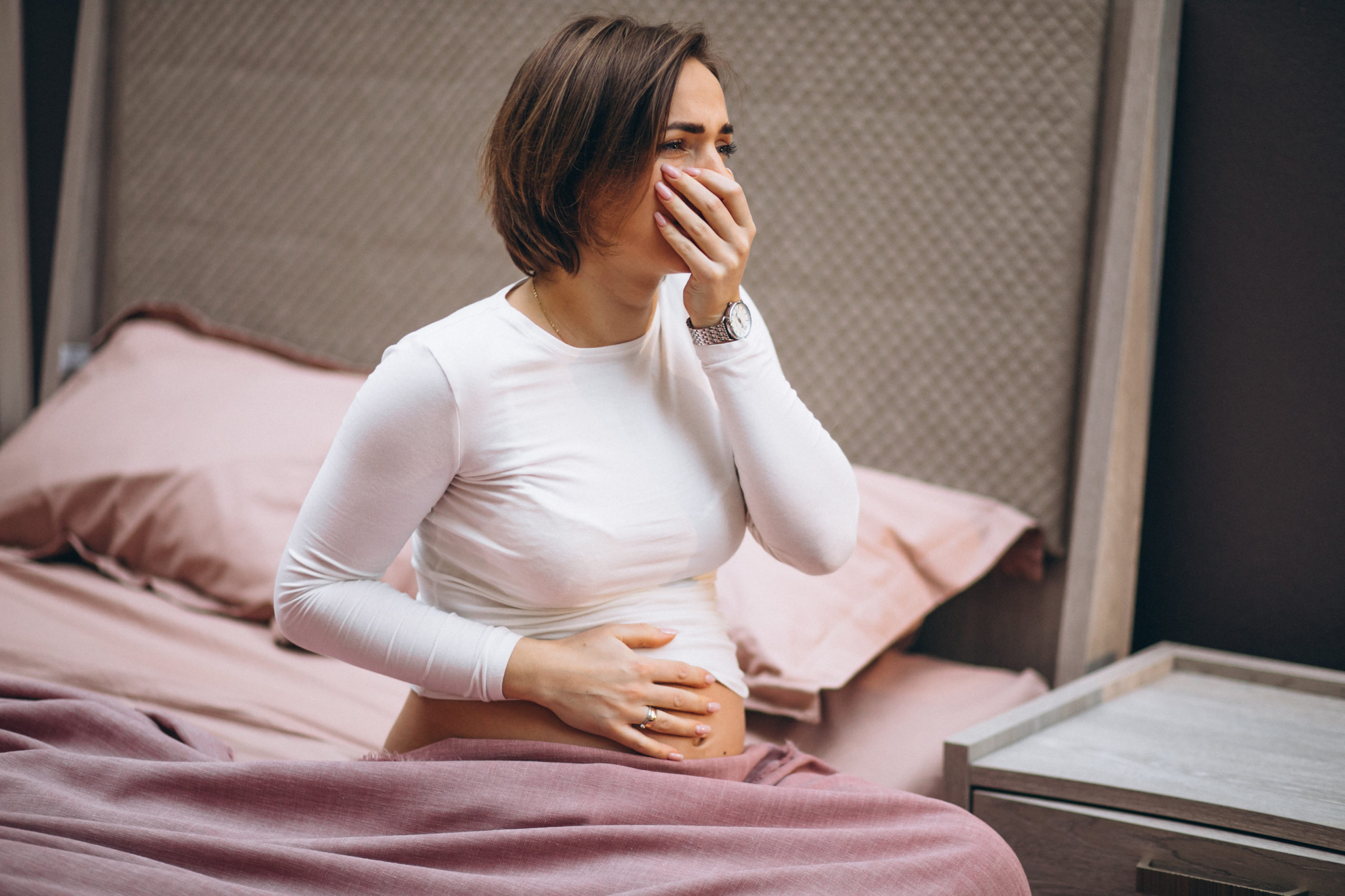The period of first 6 weeks after your delivery is called postnatal period and the care for the new mother is very important during this time. This is a wonderful time for you and you are busy with your little baby but this is also a time for mother to heal her body after a big change.
You may face many challenges during this time, you have to take care of your newborn, breastfeed him, but this is a time where you have to take care of yourself also.
Your body changes a lot after a big stress of 9 months and then labor. Your newborn might be your priority — but postpartum care is also very important.
Pregnancy changes your body in many ways and it keeps changing even after the baby is born. A new mother should take off from work for at least 6 weeks after delivery. This time can be very emotional and stressful for a new mother in both ways, physically and mentally.
Table of Contents
11 tips that can help you to care for postnatal mother
Your delivery may have been complicated or easy. You may have had a cesarean birth (C-section) or vaginal delivery. No matter how you gave birth, your body has been through a trauma just the same. It will take some time to recover.
Most women recovered by 6 to 8 weeks but full recovery can take more than 12 weeks. During postnatal period you experience lots of changes, both emotionally and physically. You are also learning how to deal with all the changes needed with becoming a new mother. Since a baby has to be fed and changed often, you may experience sleepless nights. It can be frustrating and tiresome.
You need to take good care of yourself. You have to take plenty of rest and take lots of nutrition rich food to help you recover faster.
Here are some tips that will help you to heal faster and care for yourself during postnatal period
1. Help to heal your vaginal stitches (heal your perineum)
Your vaginal area can be sore and painful after first few weeks of birth. You can apply ice to your perineum every couple of hours for first few days. Try Sitz bath to ease up your pain. Clean the area before and after peeing. Try to avoid sitting for long time.
2. Take lots of rest
A new born baby has different routine of sleep and wakening up. A typical newborn wakes up about every 3 hours and needs to be fed, changed, and comforted. This can be very tiring for you and your partner. So try to take short naps whenever your baby sleeps. Try to give responsibilities to someone else who can handle your baby for some time and you can take rest. Rest and support is an important part to care for a new mother during this postnatal period
3. Eat diet full of nutrition
In addition to rest, you need to eat a healthy diet to help you recover faster. Try to eat whenever you are Hungary. Include variety of foods in your plate. Divide your plate in grains, fruits, vegetables, dairy and protein. It can take several months for you to lose the weight that you gained during pregnancy. Along with the diet you need to drink plenty of fluid also. Try to increase your water intake 8 to 12 glass every day. Women in the postnatal period need to maintain a balanced diet to take proper care for her body.
4. C-section incision recovery
Don’t lift any heavy weight except your baby. Clean your incision once daily and keep it dry with clean towel. Don’t try to do any exercise for at least 12 weeks after your C-section.
5. Keep track on bowel movement
You can feel constipated for first 2 to 3 days after delivery during your postnatal period. Try to include plenty of water and fiber rich food in your diet. Do small walks to keep yourself physically active. You can also use stool softener to keep your bowel regular.
6. Visit your doctor for regular checkups
Within 1 week after delivery, make an appointment with your health care provider for a follow-up visit. According to the first visit your doctor will schedule your next visit that can be around 4 to 6 week after delivery. If you had a C-section, be sure to make your appointment to remove your stitches. Wait to have intercourse until after your first check-up. Ask your doctor, when you can have a safe intercourse. Be sure to discuss about the birth control options during your first postnatal check-up. You can still get pregnant while breastfeeding also, whether you menstruate or not.
15 postnatal body changes that you can expect after delivering your baby
7. Start Kegels exercise
You can start Kegel exercises as soon as early you feel comfortable. Kegel will help you to get your vagina back in shape and helps in resolving urinary incontinence after postnatal period. You can start from 20 minutes a day and can increase duration as you feel comfortable.

8. Stay physically active
Being physically active doesn’t mean that you have to do high intense workout or any kind of heavy exercises. No matter whether you had vaginal birth or C-section, you can start by walking around the house or the neighborhood. Walking helps with gas and constipation and will ease your bowel movement. You can start slow exercise also when your doctor gives you green signal for that. You should ask your doctor during your first postnatal visit that when you should start doing some exercises.
How to handle and take care for a newborn baby?
9. Take care of your breast
Your breast can be sore and swollen for few days after your delivery. Try warm compress and wear a comfortable nursing bra to support them. You can also try gently massaging your breast.
10. Ask for help
There is nothing wrong in taking help of others. Don’t be afraid to ask for help from family members and friends. They can do cooking, laundry, meal planning, shop grocery, and other house hold stuff for you. This will make your tasks easier and meanwhile you can take care of yourself. You can also look for personal home care provider for some time. Home care providers offer a variety of services. These include nursing, postnatal care of the new mother and baby, housekeeping, care of other children and many more.
Motherhood and Love : What are the qualities of a good mother?
11. Consider food supplements
During pregnancy all your vitamins and minerals are sucked by your baby, so it’s important to consider supplements like calcium, iron, folic acid, vitamins and mineral. At the time of labor your body went through a big stress. After birth of baby you have to take care of your baby but it is also important to take care of yourself as well. When you breastfeed your baby, your body is giving lots of mineral and vitamins to your baby through milk, this can cause some deficiencies in you if you are not taking a nutritious diet.
For that you can consider some of the important food supplements that are necessary for you to take like calcium, iron, vitamin d, vitamin b12, and foliate.
When to call for a help
You should consult your health care provider if you are experiencing any of the symptoms below
- High fever
- Heavy bleeding
- Constipation that last more than 3 or 4 days
- Burning while urination
- Discharge from a C-section incision and episiotomy
- Vomiting
- Headache
- Postpartum depression
- Any changes in vision
- Vaginal discharge that has foul-smell
- Sore breasts that are red or feel hot to the touch.
- Abdominal pain that is getting worse
- Passing large clots





